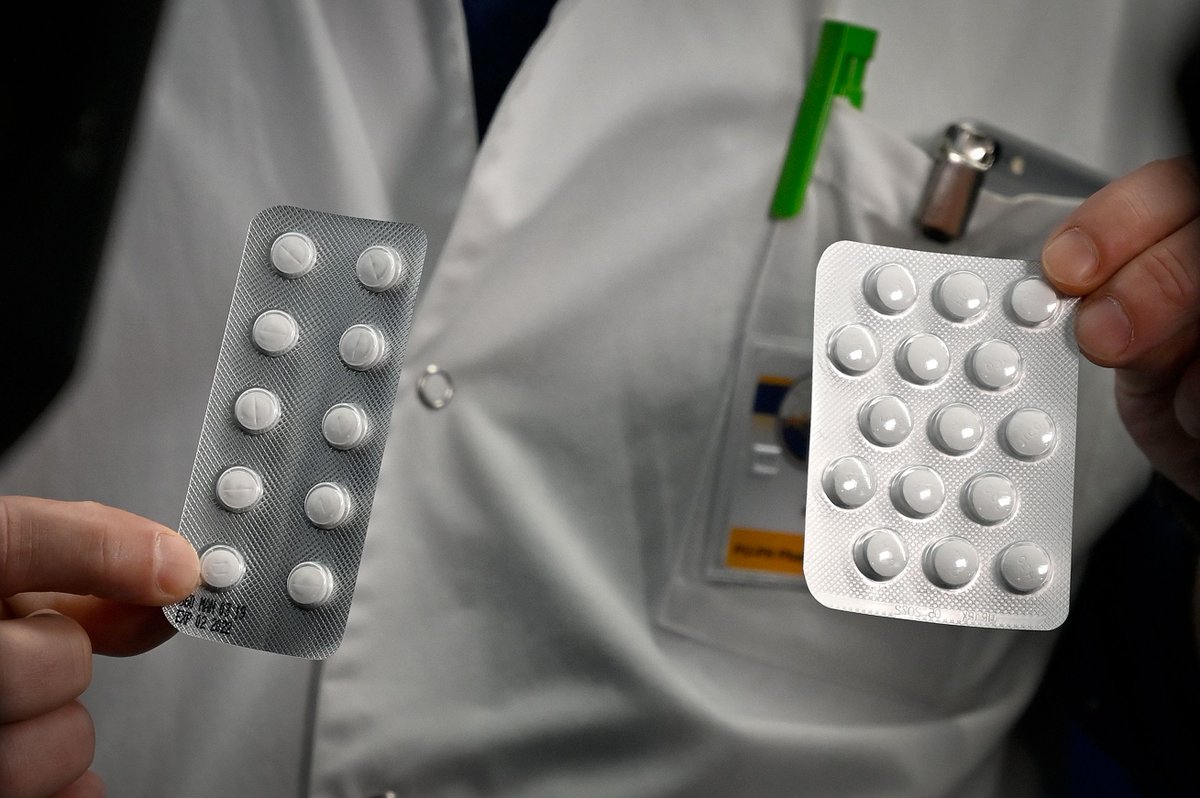There& #39;s still no proven treatment for Covid-19, but a number of trials are in the works. We don& #39;t know if any of them will show effectiveness against the novel coronavirus, but here are a few you might& #39;ve heard of: (1/12)
Hydroxychloroquine and chloroquine. These related drugs are used to treat conditions like malaria and autoimmune diseases. (2/12)
There is limited evidence, partly from studies on human cells, that they could have antiviral effects -- one hypothesis being that they could make it harder for the novel coronavirus to enter human cells. (3/12) https://doi.org/10.7326/M20-1223">https://doi.org/10.7326/M...
But scientists say the evidence isn& #39;t there, and history should make us cautious: In the past, chloroquine showed promise in vitro against influenza, but it ultimately didn& #39;t prevent infection in humans. (4/12) https://www.thelancet.com/journals/laninf/article/PIIS1473-3099(11)70065-2/fulltext">https://www.thelancet.com/journals/...
The danger isn& #39;t just false hope. We& #39;ve now seen shortages of these drugs, which people need for unrelated conditions. Some people have even overdosed and died after ingesting a non pharmaceutical version of chloroquine used to clean fish tanks. (5/12) https://cnn.it/2QXJZvG ">https://cnn.it/2QXJZvG&q...
Now, on to remdesivir. This is one of a number of antiviral treatments doctors are looking into, which may work by blocking the virus& #39; ability to replicate. (6/12)
Remdesivir was developed by @GileadSciences and previously tested against #ebola and #MERS but has not been approved as a treatment for any disease. (7/12)
Other antiretroviral drugs are also being tested -- such as a combination of HIV drugs -- but a randomized trial published this month found that they did not improve seriously ill patients compared to standard care alone. (8/12) https://www.nejm.org/doi/full/10.1056/NEJMoa2001282">https://www.nejm.org/doi/full/...
And then: convalescent plasma -- taking a component of blood from people who have recovered, with the hope that their antibodies could mitigate the virus& #39; effects in people who have been exposed or infected. (9/12)
We’ve tested this with #ebola, too. But to get this up and running, we need to ramp up antibody testing — a blood test that is different from the nasal swab we’ve all been hearing about. (10/12)
This list isn& #39;t exhaustive, but again, it& #39;s important to know that, at this point, nothing has been proven to work. However, experts say we& #39;ll see results far sooner than a vaccine because we don& #39;t need so many months of follow-up. (11/12)
Right now, our best protection is preventative: Washing your hands, keeping a safe distance, and doing what you can to help the people around you. (12/12)

 Read on Twitter
Read on Twitter


